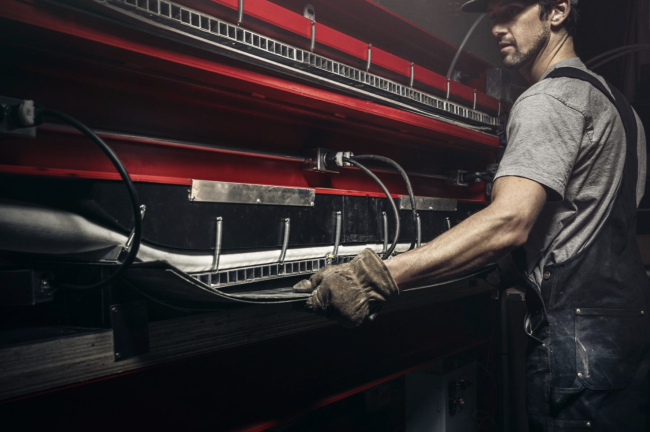You have /5 articles left.
Sign up for a free account or log in.

Nine in 10 respondents to the recent Student Voice survey say that their programs of study should require at least some form of experiential learning. At Oregon State University at Cascades, students will soon get the opportunity to run a snowboard business.
Mighty Creature Company/Oregon State University Cascades
The founders of Bend, Ore.-based SnoPlanks built a successful, sustainable snowboard company over 10 years—during which time they became popular guest speakers in business classes at Oregon State University at Cascades. Then the company’s founders, James Nicol and Ryan Holmes, did something surprising: they decided to donate the SnoPlanks business in its entirety to OSU Cascades.
Embracing this unusual donation, the university will soon launch SnoPlanks Academy, where students can learn firsthand what it means to run a business, from product design to production and from marketing to management. OSU Cascades will collaborate with Oregon State University’s College of Business on the project. Students from OSU Cascades’ thriving outdoor products program will likely be involved in SnoPlanks Academy, but it’s not exclusively for them: project leaders plan to include students from fields such as business, engineering and arts, media and technology.
Sherm Bloomer, chancellor and dean of OSU Cascades, says the “extraordinary gift” will not only transform how participating students and faculty members approach learning and teaching but also advance students’ career skills.
Todd Laurence, an instructor of business at OSU Cascades who used to invite Nicol and Holmes to speak to his classes, adds that the project will offer students résumé-building experiences that employers look for.
Students want such experiences, too: according to the recent Student Voice survey from Inside Higher Ed and College Pulse, which asked 3,000 two- and four-year students at 144 institutions about their preparation for life after college, nine in 10 respondents said that their programs of study should require at least some experiential learning. More than half (53 percent) said that internships, specifically, should be required.
Laurence and colleagues are still figuring out the details, but he says SnoPlanks Academy will be an opportunity for students “to step in and truly run a for-profit business, one that actually creates premium outdoor products.” That’s “not a simulation of a business experience,” he continues, and “students will graduate being able to say, legitimately, ‘I headed up product design for a snowboard company’ or ‘I’ve managed supply chain for a snowboard company’ or ‘I've done financial transactions and bookkeeping for an actual for-profit snowboard company.’”
As students will likely be spending a significant amount of time working on SnoPlanks, Laurence says they’ll probably receive academic credit as well as compensation, akin to a paid internship. It’s also likely that students will move through SnoPlanks in a cohort model, with those who remain over time earning more responsibility. So students who participate in the academy throughout their university experience will eventually take on executive roles that relate to their fields of study.
Laurence envisions this model of experiential learning expanding: “There’s no limit to how far you can carry this once you figure it out.” And some respondents to the recent Student Voice study also said they’d be interested in their colleges and universities adding more internship opportunities within the institution. In one example, a student at a public university in Michigan expressed desire for “more internships within the school, so that all the internship options aren’t in the hands of outside companies. Then the school could actually help ensure all students get internships, especially ones who may struggle to get one on their own.”
How else can institutions or programs of study better help students explore potential careers and find jobs? Read on for five student ideas, drawn from write-in comments and other survey takeaways.





